Turn any article into a podcast. Upgrade now to start listening.
Premium Members can share articles with friends & family to bypass the paywall.
The campus anti-Israel protests that sprang up after the Hamas attacks of October 7, 2023, featured several provocative chants. “Globalize the Intifada” was a reference to two separate violent campaigns by Palestinians against Israel. “From river to the sea, Palestine will be free” is the sanitized Anglicization of the decades-old Palestinian militant chant “From the water to the water, Palestine will be Arab,” a call for the cleansing of all non-Arabs from the Holy Land.
Less infamous, but still quite popular, was “We don’t want no two states, we want ’48.” It is this slogan, more than any other, that gives the clearest indication of the state of the Arab-Israeli conflict.
“Condemning Israel’s actions may have been the avowed purpose; for many, challenging its existence as a Jewish state and Zionism’s legitimacy were equal goals,” write Hussein Agha and Robert Malley in their new book Tomorrow Is Yesterday: Life, Death, and the Pursuit of Peace in Israel/Palestine. “The vanguard of the current protest movement borrows international slogans from the earlier stages of the conflict, its tongues trained in the era when Zionism was racism, Israel a colonial settler state, and America’s most militant civil rights activists ardent supporters of the Palestinian cause.”
Agha, raised in Lebanon, is a longtime confidant of Palestinian leaders including the late Yasser Arafat, and Malley is a Mideast hand who has advised the last three Democratic presidents. They have written a eulogy for the two-state solution, and as progressive supporters of the Palestinians indicate with their chants, that eulogy is timely.
It is not a sad eulogy, however. Reading this book, one pictures the dancing pallbearers of Ghana, made famous by a BBC profile and granted immortality as an internet meme. Agha and Malley have come to bury the two-state solution, and to express relief at its expiration.
The book is equal parts refreshing and troubling. Refreshing because of its honesty in presenting the Palestinian perspective without the moderating filters applied by Western media. Troubling for the same reason. It’s helpful to know what Palestinian nationalists really think; but if conciliation between Israelis and Palestinians is the goal, we are farther from it than we might have thought.
Still, reality is preferable to the prison of delusion.
This is not a hateful book as regards Israelis and Jews. But it is largely dismissive of Israeli concerns. Agha and Malley reserve their bitterest venom for the institutions of the Palestinian Authority and for the United States. That’s because the main thesis of the book is that the two-state solution was never actually a solution. Statehood was not the primary goal of Palestinian nationalism, nor is it a meaningful source of yearning for the Arabs of Mandate Palestine. They did not want partition then and they do not want it now, at least not primarily. “The absence of a state was not the cause of all the Palestinians’ misfortune,” Agha and Malley write. “Its creation would not be the full solution either.”
The problem is that the Arabs of Palestine wanted—and according to the authors, still want—sovereignty over the whole territory. Although Agha and Malley claim to have long preferred a binational state with equal rights for Arabs and Jews, the implication that this system doesn’t already exist within Israel’s borders is misleading. There are more than 2 million Arabs in Israel, who do enjoy rights equal to those of Jews and other ethnic groups.
They have self-determination as well, because they live in a democracy: Israeli Prime Minister Benjamin Netanyahu was only finally ousted from power in 2021 with the addition of the United Arab List, an Arab party with Islamist leanings, to the coalition that replaced his own. Netanyahu led a new government to power in 2022, but the United Arab List remains active as an opposition party in the Knesset.
The authors also occasionally indulge in their own delusions. The section of the book on the 2000 Camp David peace conference, helmed by President Bill Clinton, is a case in point. Arafat rejected Israeli Premier Ehud Barak’s offer of a Palestinian state that would include most of the West Bank, all of Gaza, and with a capital in Jerusalem, then refused to entertain follow-up offers. History sees Arafat as the villain of the affair because he unquestionably was the villain of the affair. Agha and Malley acknowledge that Barak “broke one taboo after another, stretching prior Israeli limits.” But they also argue, seemingly with a straight face, that this Israeli flexibility was counterproductive: “With such ephemeral red lines, little wonder that Arafat would see in every final position just the latest offer before the following one.”
It’s Israel’s fault, you see, for being so willing to compromise. As an attempt at absolving Arafat of even some of the blame for the failure of Camp David, this falls flat.
Yet in most other cases, Agha and Malley provide real insight into Arafat’s mindset. This is key, because Arafat’s “most potent attribute was an ability to intuit Palestinian political boundaries, how to stretch without trespassing them,” they write. “What some would call lack of political courage, he would have described as political acumen, which, for a leader who possessed so little else, had to mean so much.”
Arafat, in other words, was a faithful ambassador of the Palestinian public. That, too, has its downsides. There have been three undisputed leaders of Palestinian Arab nationalism over the past century, and all three rejected Palestinian statehood when offered. If this is representative of the Palestinian mindset—and Agha and Malley are fairly convincing that it is—then arguing over statehood is indeed a distraction.
Perhaps counterintuitively, it will be harder for Western politicians to digest this view than for supporters of Israel. For the latter, it is mere confirmation of an obvious fact: The conflict preceded 1967, when Israel took control of Gaza and the West Bank from Egypt and Jordan, so magically restoring those dividing lines does nothing to address the reason for the conflict in the first place. And that reason is, quite simply, the existence of Jewish self-determination. “The Zionist leadership grudgingly accepted the division,” the authors write. And the Arabs? “Palestinians angrily and, with Arab state backing, violently refused because they viewed it as a step away from ruling the whole of Palestine, which was their claim.”
Agha knows Arafat, and Arafat knows the Palestinians, but neither knows enough about the Israelis. That realization, too, is valuable, because it helps explain some of the Palestinian national movement’s mistakes. Arafat, the authors tell us, “would remind any who cared to listen that in times of crisis, it was paramilitary groups—the Haganah, the Palmach, Irgun—that created Israel, not peace negotiations or diplomatic shenanigans. He would learn from that history.”
Well, he would learn the wrong lessons because that history is incomplete. An army isn’t the only institution of governing. The Jews built a state-in-waiting on all counts, not just on the battlefield. Those functioning civil institutions are what’s missing from the Palestinian menu.
Despite that fact, on Sunday, the leaders of the United Kingdom, Canada, and Australia announced their countries’ recognition of a Palestinian state. France followed suit on Monday.
Where and what is this “state of Palestine?” Nobody knows. It’s an idea. But Agha and Malley make a convincing case that even Palestinians regard it as a bad idea—or, at best, a way station to conquering the rest of historic Israel. Indeed, continuing to talk about partition is downright demoralizing to the Palestinians, they write. With the inauguration of the Oslo process in the 1990s, “the movement’s center of gravity moved decisively from what had been its core, the refugees, to those living in the occupied territories. All of which made some Palestinians argue that they lost the fight the day they gained a foothold.”
What’s the solution, then? Agha and Malley argue forcefully that Hamas’ invasion of Israel on October 7, 2023, buried the Oslo process for good because it showed that Hamas—for whom the authors demonstrate a fair amount of admiration—had successfully delegitimized the Palestinian Authority. Hamas’ isolation from the West, they explain, makes the terror group more attractive and authentic to Palestinians than Mahmoud Abbas and the PA, who are seen by Palestinians as a tool of control imposed on them from the outside, irredeemably compromised and corrupted.
So if not partition, then what? Agha and Malley say there are several options. One would be for Israel to decentralize governance in the West Bank by devolving power back to individual central municipalities. Another would be a single binational state or, similarly, turning the whole of Israel/Palestine into a decentralized federation with one Israeli and one Palestinian national government that function in cooperation with one another, and in which citizens could only vote as part of one or the other.
Lastly, there is the option that appears most realistic of all the alternatives: the Jordanian-Palestinian confederation, in which the West Bank would be a mostly autonomous district of Jordan but would not have its own army or conduct foreign affairs. (Gaza could theoretically be added to this confederation, but at the moment the future governance of the enclave is unclear.) Agha and Malley write: “Palestinians would gain economic and strategic strength, reduce their vulnerability and dependence on Israel, obtain valuable political space, and form part of a more consequential state. The notion of a nonmilitarized West Bank could become more palatable: Rather than Palestine being deprived of a military, Jordan/Palestine would consent to a limited demilitarized zone, akin to what Egypt already accepted and what Syria, in the event of a peace deal, almost certainly would have had to live with.”
Particulars aside, Agha and Malley are surely correct that now is a time to reconsider old shibboleths and introduce some creative thinking. It is also a time to listen to the Palestinians and their supporters when they say the core conflict is about 1948, not 1967. It would be a shame if that meant the Palestinians would never be willing to live side by side in peace and security with the state of Israel. But it would be foolish to design policy around anything other than cold, hard reality.
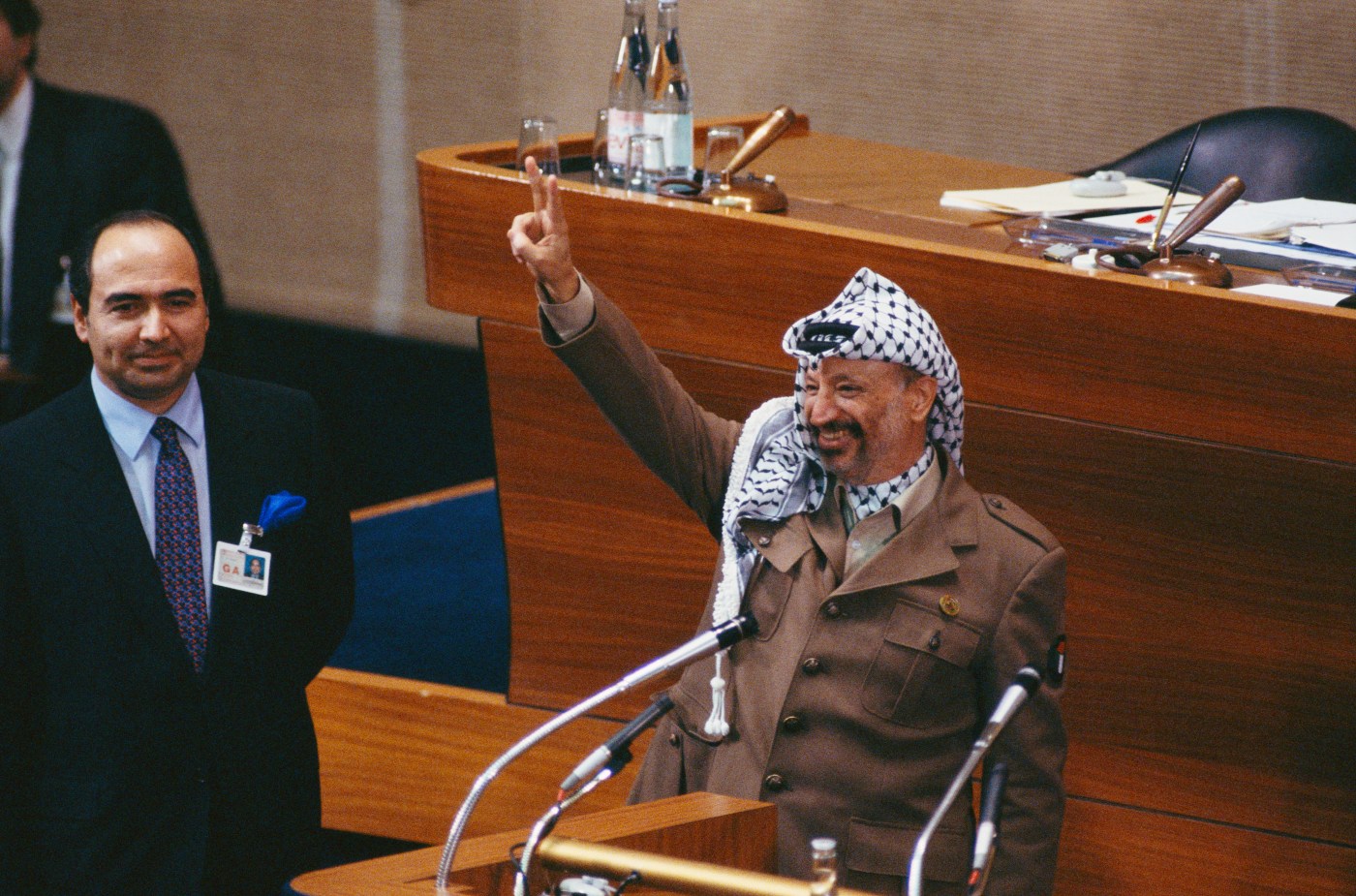
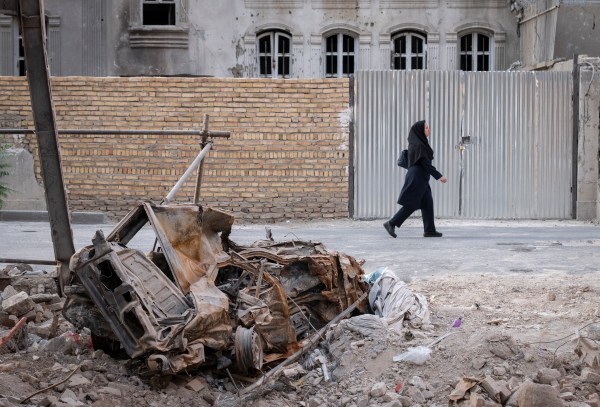
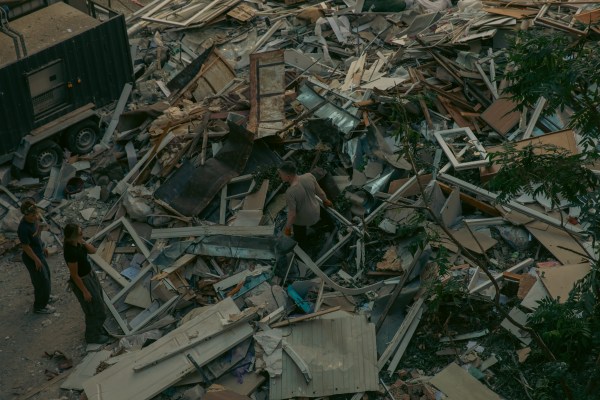

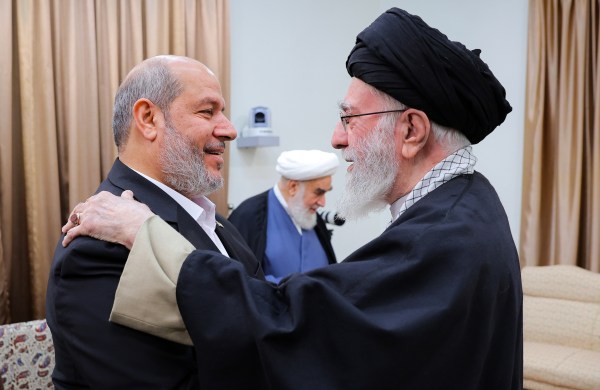
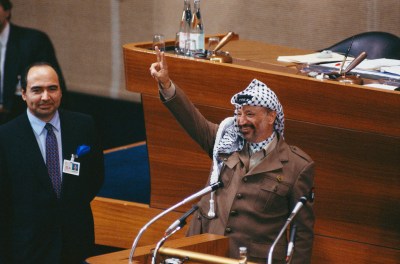
Please note that we at The Dispatch hold ourselves, our work, and our commenters to a higher standard than other places on the internet. We welcome comments that foster genuine debate or discussion—including comments critical of us or our work—but responses that include ad hominem attacks on fellow Dispatch members or are intended to stoke fear and anger may be moderated.
With your membership, you only have the ability to comment on The Morning Dispatch articles. Consider upgrading to join the conversation everywhere.